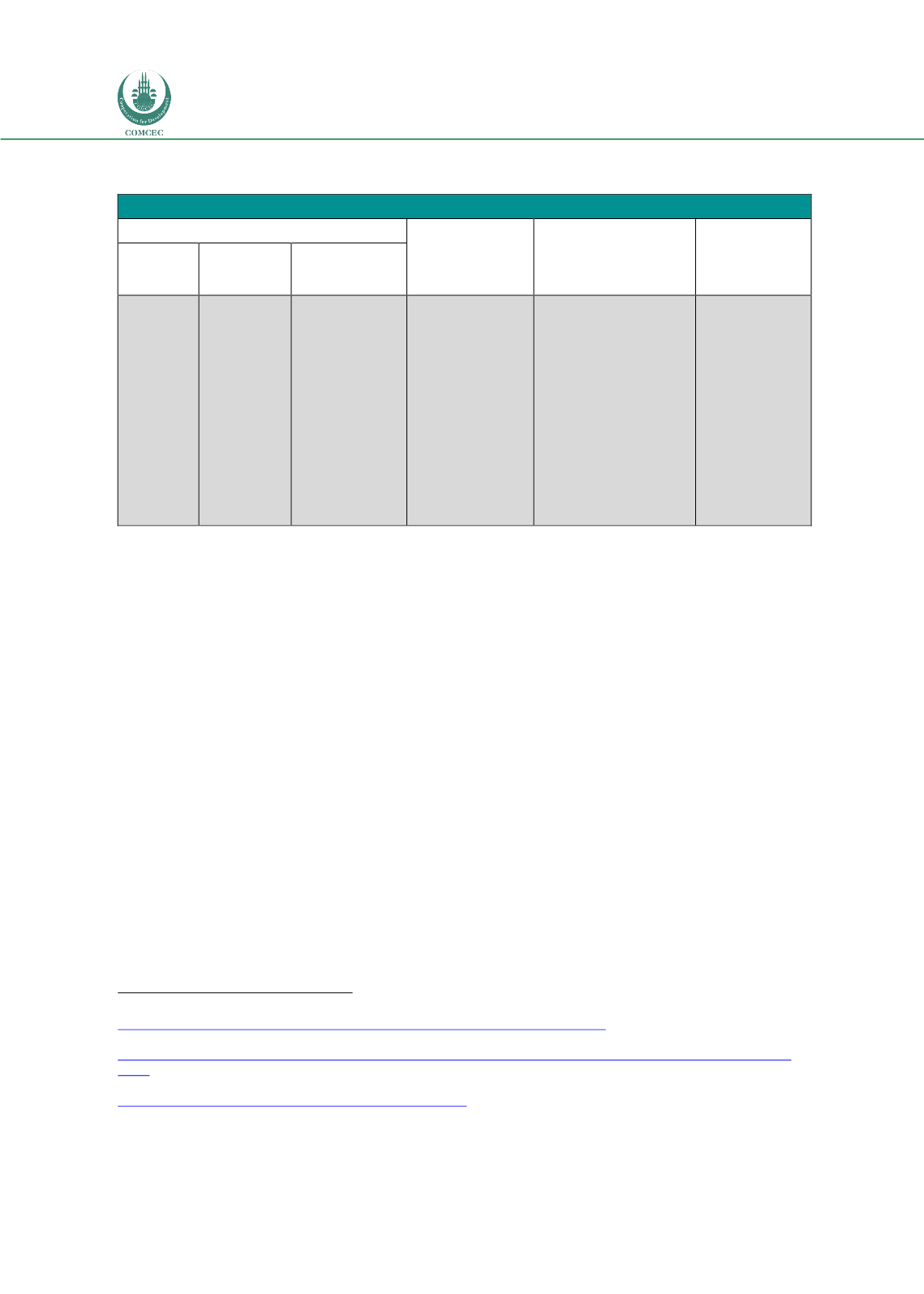

Forced Migration in the OIC Member Countries:
Policy Framework Adopted by Host Countries
106
Table 9: Health care rights and fees for refugees
Access to Healthcare for Refugees by Nationality
Palestinians
Syrians
Iraqis
Other
1948
Refugees
Ex-Gazans
Palestine
Refugees from
Syria (PRS)
Full access
to
Jordanian
health care
as citizens
Free
access to
UNRWA
health
services
Free access
to UNRWA
health
services
Access to
Jordanian
healthcare
but charged
at foreigners’
rate
Free access to
UNRWA health
services
Access to
Jordanian
healthcare but
charged at
foreigners’ rate
Free primary care
at NGO-run clinics
Jordanian health
services
-
2011 – Nov. 2014:
Free primary care
-
Nov. 2014 –
Present: Primary
care charged at
subsidized rate
(same as
uninsured
Jordanians)
Free primary care at
NGO-run clinics
Jordanian health services
-
2007 – Aug. 2015:
Primary care charged
at subsidized rate
(same as uninsured
Jordanians)
-
Aug. 2015 – Present:
Primary care charged
at foreigners’ rate;
secondary care
subsidized by UNHCR
Free primary
care at NGO-run
clinics
Jordanian health
services
-
All care
charged at
foreigner’s
rate
-
Emergency
and pregnancy
services
subsidized by
UNHCR
Palestine refugees with Jordanian citizenship can access health care on the same level as other
Jordanian citizens. Those without citizenship, including PRS and ex-Gazans, are charged at the
foreigners’ rate. UNRWA also operates 12 health clinics inside of camps and 11 clinics outside
of camps in Jordan, as of 2014. Primary healthcare is provided for free at UNRWA clinics, and
referrals are provided for secondary and tertiary treatment.
247
The cost of services can be a major barrier for all refugee groups, particularly in using
Jordanian health facilities. A UNHCR rapid survey conducted in May 2015 after fees were
reintroduced for Syrians found that Syrian families reported more difficulty accessing health
services, primarily due to costs, and that families had less knowledge about the cost of
services or conditions under which they could be accessed.
248
Syrians have also shifted their
use patterns to rely more heavily on NGO-provided health services, which are free, rather than
public clinics, placing more strain on NGOs already suffering from funding limitations.
249
Moreover, although services provided at UNHCR clinics are broadly free, there is a fee of JD 2
(USD 3) to open a file, which can be a barrier for refugees with already limited resources.
250
As in other service areas, public health care services in Jordan have been strained by the
demands of the refugee population. The Jordanian government estimates additional demand
by Syrians has contributed to exceeding the capacity of health clinics by 22 percent, and
government reports have found a shortage of over 1000 doctors as a result of increased
demand.
251
247
UNRWA Department of Health,
Annual Report 2014
, (Amman: UNRWA, 2015),
http://www.unrwa.org/sites/default/files/health_department_annual_report_2014.pdf248
UNHCR,
At a glance: Health access and utilization survey among non-camp refugees in Jordan
, (UNHCR: 2015),
http://reliefweb.int/report/jordan/glance-health-access-and-utilization-survey-among-non-camp-refugees-jordan-may-2015.
249
UNHCR, “Syria Regional Refugee Response, Inter-agency Information Sharing Portal,” updated June 2, 2016,
http://data.unhcr.org/syrianrefugees/download.php?id=9202250
ARDD-Legal Aid,
Putting Needs Over Nationality
, pg., 5.
251
Hashemite Kingdom of Jordan, Ministry of Planning and International Cooperation,
Jordan Response Plan for the Syria
Crisis: 2016-2018
















